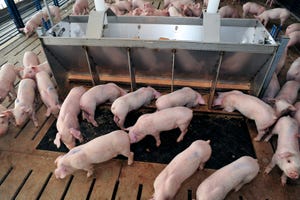African swine fever now in Tibet, only 1 province left with no outbreak
Fifty-five pigs have so far been killed in the Tibet outbreak, which comes just three days after the latest reported case in Xinjiang.
April 8, 2019

On Sunday, China’s Ministry of Agriculture and Rural Affairs confirmed African swine fever was found in two counties and one district of the city of Linzhi in the Tibet Autonomous Region. The province of Hainan and the special administrative regions of Hong Kong and Macau are the only areas of China left that have not reported an outbreak of ASF.
According to Reuters, 55 pigs have so far been killed in the Tibet outbreak, which comes just three days after the latest reported case in Xinjiang.
Since MARA confirmed its first ASF outbreak in Liaoning Province on Aug. 3, more than 115 ASF outbreaks have been reported. Around 1 million pigs have been culled in an effort to halt further spread.
New guidelines have been released by Chinese authorities for slaughterhouses. According to the Swine Health Information Center, slaughterhouses will have to put in place the procedures to conduct self-inspection based on on-site diagnostics using polymerase chain reaction testing. The authorities set different deadlines, depending on the size and importance of the slaughterhouses (April 1: slaughterhouses doing crossprovincial sales of pig products, having over 100,000 head per year, and integrated pig slaughtering and processing enterprises; May 1: slaughterhouses having over 50,000 head per year; July 1: all other slaughter companies) to fulfill the infrastructure and diagnostic capacity requirements.
Authorities at the provincial level also plan to promote restocking of big farms again with the release of temporary subsidies, as the stock in key regions has been dramatically affected. As an example, in Shandong province, northern China’s biggest producer of hogs (7% of all hogs sent to slaughterhouses), the stock of breeding pigs plunged 41% in the seven months to February.
You May Also Like



